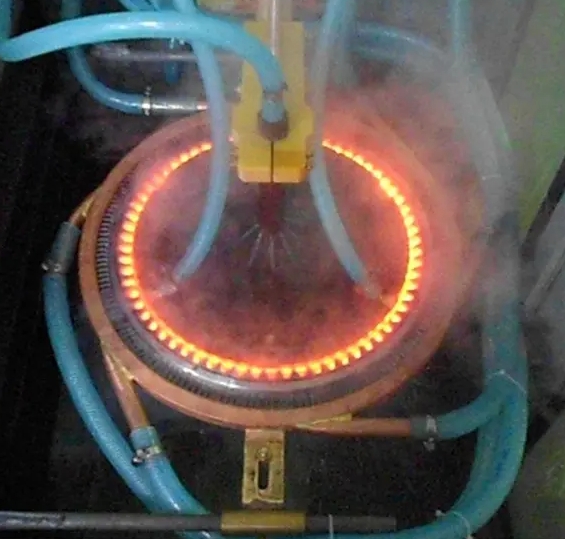- 21
- Jun
The difference between high frequency quenching and intermediate frequency quenching
The difference between high frequency quenching and intermediate frequency quenching
1. High-frequency quenching has a shallow hardened layer (1.5~2mm), high hardness, the workpiece is not easy to oxidize, has small deformation, good quenching quality and high efficiency, and is suitable for parts that work under friction conditions, such as generally small gears, shafts (The materials used are 45# steel, 40Cr);
- The intermediate frequency quenching has a deep hardened layer (3~5mm), which is suitable for parts that are subject to twisting and pressure loads, such as crankshafts, large gears, grinding machine spindles, etc. (the materials used are 45# steel, 40Cr, 9Mn2V and ductile iron).

